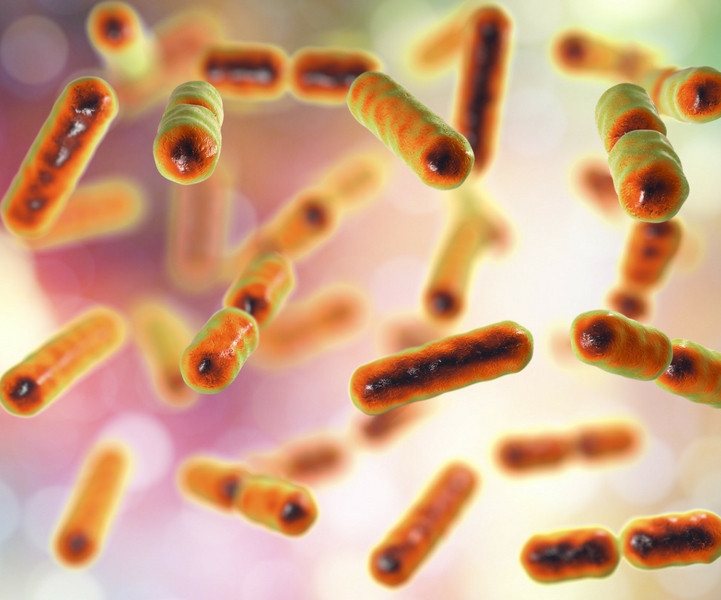Gut Microbiome Diversity – Why t Should Matter to You
Gut microbiome health and diversity is closely linked to your overall health.
More and more, gut microbiome research is beginning to indicate that a diverse and resilient microbiome is one of the easiest and most important ways to become a healthier you.
Your microbiota is a collection of microbes that live harmoniously in and on your body.
Majority of these are found in the gut and mouth, while small amounts are found in the skin and nose, genitalia, among other places as well.
Then gut microbiome is especially vital because it is involved with your weight, health of your immune system and overall digestive health. Everyone has a unique gut microbiome which is shaped by diet, lifestyle, and environment.
The composition of your microbiome changes on a daily basis, depending on what you eat and drink. A diverse and resilient gut microbiome is a crucial sign of health. Here are some important reasons why your gut microbiome should matter to you.
A Healthy Microbiome Affects Food Cravings
Food cravings are not in your control, or so you think!
These cravings, especially the ones for sugary or high fat – low nutrition foods might be the cravings of the harmful microbes in your gut.
Microbes have the power to generate cravings for the foods they require to survive and multiply. They can control hormones secreted in the gut and can release enzymes which are a lot like leptin (body’s hunger hormones).
A greater variety of microbes in your gut makes it less likely for one group to become dominant and empower your taste preferences and cravings. People with a more diverse microbiome are also more likely to keep healthy weight.
However, the good news is that you can starve out the harmful bacteria in as less as 24 hours. What you eat has instant effects on the bacteria population in your gut. You can quickly make a difference by supporting the good bacteria by including prebiotics and other healthy food.
A Healthy Microbiome Helps Digest Food
There are many foods that are indigestible to humans without the help of friendly probiotics in the gut microbiome. Fiber-rich foods, such as oatmeal, brown rice, peas, beans, and legumes are some of the more common kinds of these foods.
These foods contain complex carbohydrates that are not easy for your body to digest through the entire digestive tract, until they reach the colon. In the colon, these types of food are partially consumed by the friendly bacteria and digested.
Humans require particular kinds of bacteria to digest fiber, because we do not possess the necessary enzymes in out digestive tract. Bacteria ferment fiber to product helpful short-chain fatty acids like butyrate.
These resultant short-chain fatty acids have been shown to have a number of health benefits from reducing inflammation to preventing heart diseases and diabetes.
A Healthy Microbiome Can Affect Your Mental Health
Your digestive system and the brain are intimately linked. Most people have experienced gastrointestinal symptoms, such as diarrhea or nausea brought on by stress or anxiety.
Sometimes, gastrointestinal symptoms can be the root cause of stress, anxiety, or depression. This 2-way signaling occurring between the gut and the brain is called the gut-brain axis.
The microbial species of the gut have now been proven to have a massive influence on how the brain functions and acts. The gun-brain axis is now believed to be a major aspect in the mechanisms that affect the brain’s signaling process
The microbes can influence neurotransmitters, like serotonin or use end-products like butyrate to signal the brain. While there is still research that has to be done in this area, early findings are incredibly promising.
Scientists have found that 90% of serotonin and majority of dopamine (happy hormones) are created in the gut. Serotonin – or a lack there of – has a major role in the onset of depression. This explains why depression or sadness can make you reach for that tub of ice cream. It’s an interesting cycle as that kind of processed sugar hurts probiotics and fuels unhealthy bacteria – the more ice cream you eat, the more you will crave.
A Healthy Microbiome Helps to Maintain a Healthy Weight
You should care about your gut microbiome if you care about losing weight. A lack of species in the diversity of your gut flora can make 1 species dominant which increases your risk of obesity.
Obese people have been shown to have greater levels of a bacteria group called Firmicutes and fewer Bacteroidetes bacteria, as compared to regular weight people. This has opened up a new avenue of research for scientists studying obesity and ways to combat it.
You can have your gut microbiome flourish in no time by eating a diet rich in fiber and a variety of fruits and vegetables. Conversely, eating large quantities of low-nutrition processed foods or starchy and refined carbohydrates will upset the balance and allow for the unhealthy bacteria to take over.
A Healthy Microbiome Is the Powerhouse of Your Immune System
A large part of the immune system is based in the gut lining. Recently, evidence suggests that microbiome has a major role in regulating and providing some of that immunity.
When babies are being developed in the womb, their guts are sterile. Over the weeks in the womb, certain bacteria find their way in. This suggests that bacteria enter a symbiotic relationship with humans as early as while in the womb.
This is still open to debates because a significant portion of the medical community believes that babies are sterile during childbirth and begin to colonize bacteria only after their first sip of milk. However, it is accepted that by the time a toddler turns 3 years of age; their gut microbiome starts to look like an adult’s.
The gut forms a selective barrier inside the lining of the gut which prevents harmful bacteria and substances such as toxins and allergens from entering the body. However, it allows for microscopic nutrients to pass through. Part of this defense system is made of the probiotics that take up residence along the inside of the gut lining.
These bacteria apart from acting as a gatekeeper, also gently stimulate the immune system creating a low-grade inflammation. This releases antibodies and prevents the harmful bacteria from gaining a foothold.
Final Thoughts
The gut microbiome also helps produce some essential B-vitamins and other nutrients. They can also protect you from an allergy by controlling the immune system.
It is vital that you pay attention to your gut and include food options like fermented foods, green vegetables, diverse fruits, and high fiber grains. You can also include probiotics in the form of supplements to maintain a healthy and diverse microbiome.




